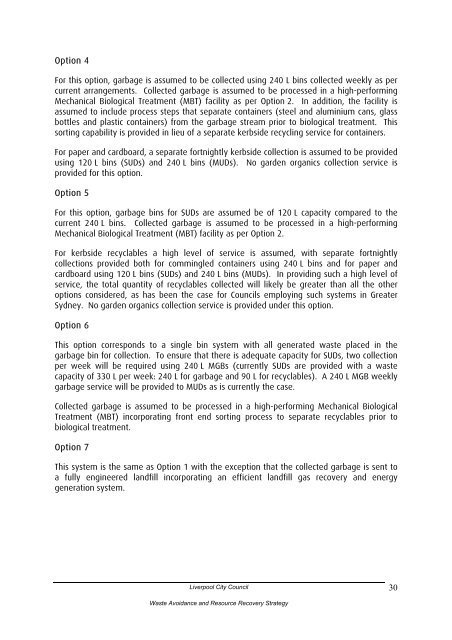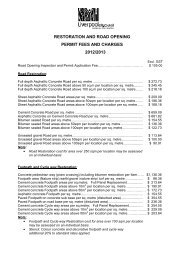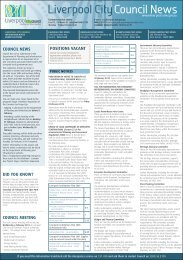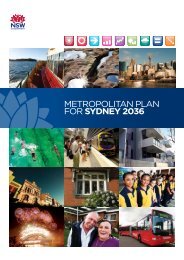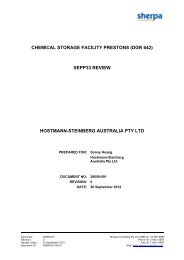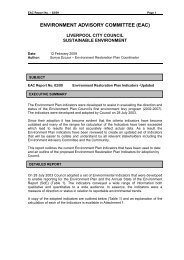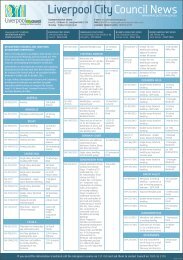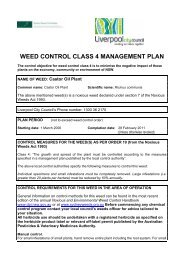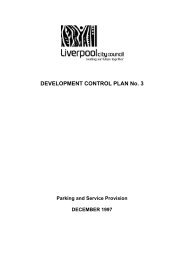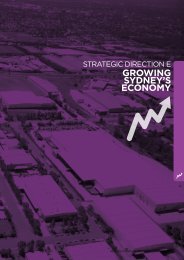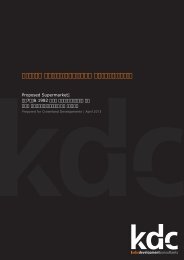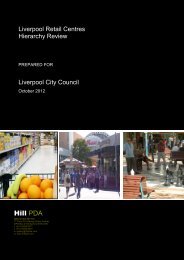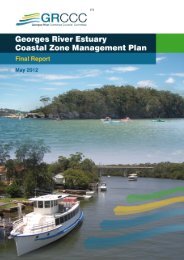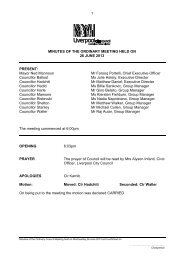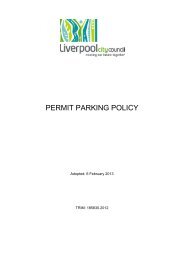to view the WARR Strategy. - Liverpool City Council - NSW ...
to view the WARR Strategy. - Liverpool City Council - NSW ...
to view the WARR Strategy. - Liverpool City Council - NSW ...
Create successful ePaper yourself
Turn your PDF publications into a flip-book with our unique Google optimized e-Paper software.
Option 4For this option, garbage is assumed <strong>to</strong> be collected using 240 L bins collected weekly as percurrent arrangements. Collected garbage is assumed <strong>to</strong> be processed in a high-performingMechanical Biological Treatment (MBT) facility as per Option 2. In addition, <strong>the</strong> facility isassumed <strong>to</strong> include process steps that separate containers (steel and aluminium cans, glassbottles and plastic containers) from <strong>the</strong> garbage stream prior <strong>to</strong> biological treatment. Thissorting capability is provided in lieu of a separate kerbside recycling service for containers.For paper and cardboard, a separate fortnightly kerbside collection is assumed <strong>to</strong> be providedusing 120 L bins (SUDs) and 240 L bins (MUDs). No garden organics collection service isprovided for this option.Option 5For this option, garbage bins for SUDs are assumed be of 120 L capacity compared <strong>to</strong> <strong>the</strong>current 240 L bins. Collected garbage is assumed <strong>to</strong> be processed in a high-performingMechanical Biological Treatment (MBT) facility as per Option 2.For kerbside recyclables a high level of service is assumed, with separate fortnightlycollections provided both for commingled containers using 240 L bins and for paper andcardboard using 120 L bins (SUDs) and 240 L bins (MUDs). In providing such a high level ofservice, <strong>the</strong> <strong>to</strong>tal quantity of recyclables collected will likely be greater than all <strong>the</strong> o<strong>the</strong>roptions considered, as has been <strong>the</strong> case for <strong>Council</strong>s employing such systems in GreaterSydney. No garden organics collection service is provided under this option.Option 6This option corresponds <strong>to</strong> a single bin system with all generated waste placed in <strong>the</strong>garbage bin for collection. To ensure that <strong>the</strong>re is adequate capacity for SUDs, two collectionper week will be required using 240 L MGBs (currently SUDs are provided with a wastecapacity of 330 L per week: 240 L for garbage and 90 L for recyclables). A 240 L MGB weeklygarbage service will be provided <strong>to</strong> MUDs as is currently <strong>the</strong> case.Collected garbage is assumed <strong>to</strong> be processed in a high-performing Mechanical BiologicalTreatment (MBT) incorporating front end sorting process <strong>to</strong> separate recyclables prior <strong>to</strong>biological treatment.Option 7This system is <strong>the</strong> same as Option 1 with <strong>the</strong> exception that <strong>the</strong> collected garbage is sent <strong>to</strong>a fully engineered landfill incorporating an efficient landfill gas recovery and energygeneration system.<strong>Liverpool</strong> <strong>City</strong> <strong>Council</strong>30Waste Avoidance and Resource Recovery <strong>Strategy</strong>


